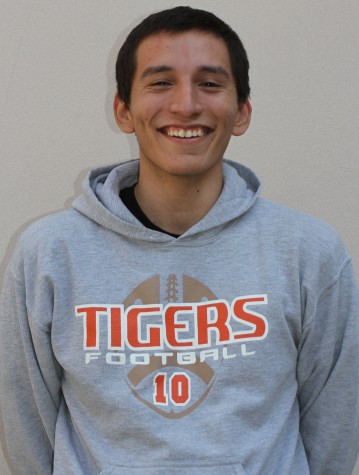The dangers of global warming are real, and things are likely to get worse, Geography Professor Michael Reed warned attendees in a lecture Feb. 26.
Reed, who came to GCC in July of 2000, talked about the effects that global warming could cause if we didn’t adopt appropriate measures to stop it.
“If you think it’s bad now,” said Reed, “it will be multiples of three to five times as bad in the future.”
Things are going to get a lot worse.
According to the Heat Adoption Workgroup in a 2006 California heat wave, 650 people died. Climate models have also predicted an annual increase of 5 degrees in temperature by the 2030s.
During the California heat season, Los Angeles is expected to have 78 days of extreme heat by 2050, more than any other city in California.
According to a California state report from 2012, “Our Changing Climate,” global warming is accelerating. Just one 1degree of Fahrenheit temperature-change in the last 100 years has led to four times as many fires in the American west. The U.S. forest Service has added 75 days to the firefighting season in the last 40 years alone. It has been three times warmer in this era than in the last century.
“This is very severe,” Reed said. “If everyone in Glendale stopped using cars and stopped buying gas, it would still be a problem.”
Reed believes that even if we stop now and do everything right, we still have 250 years of dramatic climate change to face.
“It’s that bad,” he said.
There is no denying that global warming is going to be a problem, and future generations will have to bear our mistakes.
According to the U.N.’s Intergovernmental Panel on Climate Change, the atmosphere and oceans have warmed, the sea level has risen, the concentration of greenhouse gasses has increased, and snow and ice caps have diminished.
Stronger rains, hotter summers, and colder blizzards are weather changes we are most likely going to see in the future.
“Ice cores present for hundreds of thousands of years are melting now,” said Reed. “Without the greenhouse effect life would not exist. It is essential to life on earth. It keeps the earth from becoming a ball of ice.”
One of Reed’s proposed methods of slowing down the effects of global warming is to implement a carbon tax — the more output you create, the more you pay.
He said that low-income families would get hit the hardest.He suggested that the government lower personal income taxes to offset excess burden.
Fighting the effects of global warming needs to be a collective and unified effort. We need to share the problem.
“We rely on the environment for our resources,” said Reed.” We don’t spend enough money on it.”
Being the only superpower on the international level, the U.S. should step up their policies, but they’re not. Their inability is putting us behind Europe and other developed countries.
“We are slowly cooking ourselves,” said Reed, “by the time we do something, we will be decades behind.”

